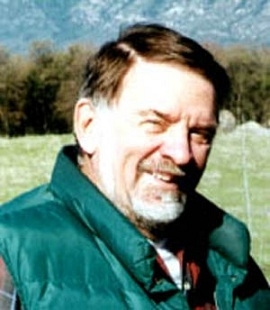Gary Nash
Biography
Gary B. Nash, Distinguished Research Professor, 27 July 1933-29 July 2021.
Gary Nash, a prolific historian of early America and a member of the history department since 1966, died on July 29th. Gary earned his undergraduate and graduate degrees at Princeton, taking a break to serve in the Navy for three years. Once he finished his doctorate, he taught briefly at Princeton before coming to UCLA. He moved rapidly through the faculty ranks, earning full professor in 1972, by which time he had published two books: Quakers and Politics: Pennsylvania, 1681-1726 (1968), based on his doctoral dissertation and Class and Society in Early America (1970). Although Gary retired from UCLA in 1994, he long remained involved in the university, with the National Center for History in the Schools among other concerns. A member of the American Academy of Arts and Sciences, he continued to write and to support the work of colleagues, especially students and junior colleagues.
Among his most notable books, his Red, White, and Black: The Peoples of Early America (1974, with many subsequent editions) offered a survey of early American history that featured the three major groups in British North America; this innovative work reshaped the way historians approached the American past. He was proud to report that it was required reading for a time at some military academies such as West Point. His magnum opus, The Urban Crucible: Social Change, Political Consciousness and the Origins of the American Revolution (1979), argued for the importance of non-elites in bringing about the American Revolution. Part of the new social history and the new Left historiography that was remaking understandings of the American past, the book reflected Gary’s view that U.S. history was shaped by the struggles of ordinary people trying to better themselves. Urban Crucible, a finalist for the Pulitzer Prize, inspired a number of historians to study social history and American radicalism. Gary’s focus on the struggles of ordinary people also inspired the textbook he co-authored, The American People: Creating a Nation and a Society (1986, with many subsequent editions). He wrote numerous books in African American history as well, including Forging Freedom: The Formation of Philadelphia’s Black Community, 1720-1840 (1988) and The Forgotten Fifth: African Americans in the Age of Revolution (2006). By the time of his death, he had authored dozens of books, many of them single-author monographs but others co-authored or co-edited works. Most recently, he published Warner Mifflin: An unflinching abolitionist (2017); and Writings of Warner Mifflin: Forgotten Quaker Abolitionist of the Revolutionary Era, co-authored with Michael R. McDowell, was released this summer. His last manuscript, Our Beloved Friend: The Life and Writings of Anne Emlen Mifflin, co-authored with Emily M. Teipe, has just been completed.
His highly productive research career was only part of how he spent his time; Gary was also an active university and professional citizen. At UCLA, he was Dean of Undergraduate and Intercollege Curricular Development, and Dean, Council on Educational Development. He founded the National Center for History in the Schools at UCLA, working with National Council for History Standards to create History Standards with funding from the National Endowment for the Humanities and the Department of Education (a project mandated by Congress). Once the Standards were published—with input from many educators and scholars—the by-then former head of the NEH launched an all-out campaign against them and against Gary as their lead author. He and his colleagues Charlotte Crabtree and Ross Dunn wrote an account of the controversy, History on Trial: Culture Wars and the Teaching of the Past (1997). This controversy has echoes in the current efforts to dictate educational content on the part of the former U.S. president and his supporters. Gary also served as President of the Organization of American Historians (1994-95). His service to the profession, the public (as with the National Park Service), and K-12 educators was legion.
Gary was also a passionate and engaging teacher; he was awarded the UCLA Distinguished Teaching Award in 1991. He fought to get social history included in the US survey at UCLA, which led for a time to two separate surveys, one social (the 6 series) and the other a more traditional political and intellectual history (7), before the two were combined into today’s History 13 (A-C). His lecture courses wove stories about the past, stories that featured individuals struggling to better their lives. His seminars were challenging and attracted many graduate students. For years, early American history students met at his home for a potluck dinner and to discuss each other’s dissertation chapters. A clear and elegant writer himself, he was also an extremely talented editor of the writing of others; not only his many students but also innumerable colleagues pay tribute to his talents in this direction.
Gary was above all passionate, about his causes, about writing history, and about fighting the good fight. He was an athlete, a backpacker, and a lover of the outdoors. His enormous energy allowed him to make an outsized contribution in many areas. He leaves behind his wife of forty years, Cindy Shelton, children, grandchildren, and many bereft friends.
The Gary B. Nash Memorial Fund has been established to support the mission of the African-American and American-Indian Centers within the UCLA Institute of American Cultures. Donations in Gary’s memory can be submitted online at https://giving.ucla.edu/Campaign/Donate.aspx?SiteNum=483&fund=14440c or you may send a check payable to “The UCLA Foundation/Nash Memorial Fund” and mail to The UCLA Foundation, PO Box 7145, Pasadena, CA 91109-9903.
The National Park Service Foundation (with which Gary worked for years) is also accepting donations in his memory: https://www.nationalparks.org/support


